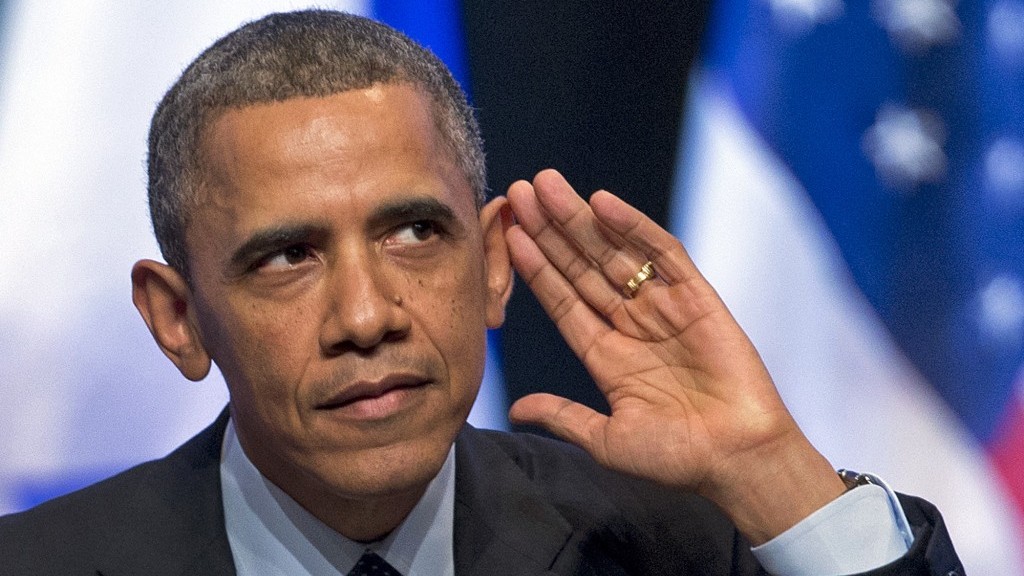
Listening to what THEY have to say
It is said that we humans were given one mouth and two ears for a reason; more than providing us simply with the means to talk, the Good Lord doubled down on our ability to listen. Given his rich endowment in the hearing department, President Obama could really get an earful if he went to Cuba as equipped to receive as he is to transmit.
In expressing this view, we appear to be in the minority. Up to now, every opinion column we’ve read reacting to his upcoming trip has offered little more than points the writers want him to score, or lists of demands they want him to make.
Some add demands that the President gather together pre-selected groups of Cubans who will say to him exactly what the most determined critics of his policy here in the U.S. want Mr. Obama to hear.
In other words he’s being counseled to do exactly what all our previous presidents have done since the Cold War – lecture Cuba’s leaders about bending to the will of the United States – the only difference being that his ten predecessors made their speeches without leaving the confines of the White House grounds and seeing Cuba for themselves.
For example, the Washington Post, dead set against the trip from the start, published The President must make the trip to Cuba count, an editorial which asked, “will Mr. Obama address Cubans directly, in places where thousands of ordinary people – not hand-picked party cadres – can see and hear him? Will he visit private businesses? Will he give an interview to Yoani Sánchez, the country’s renowned independent journalist?” Unless the president checks every one of these boxes, of course, the Post will mark the trip as having failed.
Elliot Abrams, in “The disgraceful Obama trip to Cuba,” a column on the Council on Foreign Relations blog, despairs without evidence that the president is only going to Cuba to have his picture taken with Fidel Castro, and says he can only salvage the trip by meeting with the “right” dissidents and having a “Mr. Gorbachev, tear down this wall” moment.
Andres Oppenheimer, writing for the Miami Herald, proclaims that a presidential meeting with Cuban civil society “that includes government-paid ‘intellectuals,'” would be a sham (we’re guessing the air quotes around ‘intellectuals’ reflects a smidge of condescension), saying Mr. Obama must meet with opposition leaders, many of whom are on our government’s payroll, instead.
Writing for the Telegraph, David Blair, a fan of the trip, wants Mr. Obama to be “deeply subversive,” and use “his emollience, charisma and ‘soft power’ – not force and threats – to achieve essentially the same goal, namely political change.”
When Susan Rice, the president’s national security advisor, tweeted about the trip, she wrote “#Cuba visit will allow @POTUS to discuss progress over 1+ year and, more importantly, continued disagreements, incl. over human rights.”
What’s striking about all the advice the president received is its conceit; namely, if you are traveling to Cuba, you should come prepared to lecture rather than listen since, apparently, you can’t learn anything by going there that you didn’t already know before you left.
In fairness, the president is not immune from such thinking himself. During last Saturday’s radio address, he offered a detailed list of what he plans to say to President Castro and others, but mentioned listening just once, when he promised to learn from Cuban entrepreneurs “how we can help them start new ventures.”
That’s a shame, since this suggests he is narrowing what could otherwise be an exciting conversation with those small business owners. Even more, he seems to be ruling out the chance for an unstructured back and forth with any of the roughly 70% of adult Cubans – the college professors, the physicians, the women taking care of kids in day care, the dancers in the National Ballet, or the hardworking guys carrying bags in hotels – who remain on the payrolls of the state. As if their aspirations, hopes, and dreams for the future simply didn’t count for as much as the opinions of the island’s honorable but self-employed minority.
To be sure, when the president goes to Cuba in March, he’ll be mobbed and loved by the Cuban people, which in turn will have a disruptive effect on Cuba’s political equation itself. Cuba’s leaders know this, which is a powerful answer to the baseless accusation that Mr. Obama got no concessions from Cuba’s government before announcing his visit in the first place. When he gets there, the President will, of course, say what he thinks must be said, reflecting his own values, our country’s Cold War legacy, and the demands of our politics, while also celebrating and consolidating the real achievements of his policy.
But, it would also be nice if he were to balance the gamesmanship with the kind of statesmanship that Mr. Obama, a president who lived overseas in the developing world during his youth, can uniquely offer. It’s as simple as meeting a genuine cross-section of Cubans and asking them about their lives. Given the chance, the ones we know would just let it rip, and you can’t be a more respectful or effective guest then by inviting them to do exactly that and then listening to what they have to say.
(From Cuba Central)


